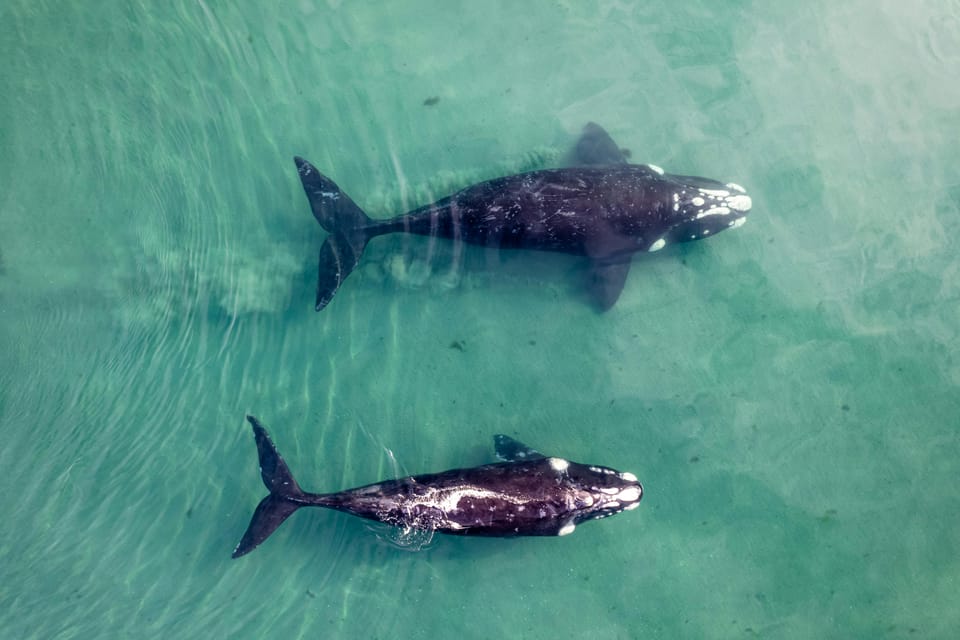Beyond Anthropocentrism: designing a world where all beings matter

When we talk about climate action, innovation, and the future of technology, the focus is almost always on humans: how to reduce emissions to protect cities, use AI to optimize food systems, or design better urban spaces for our convenience.
But what if we looked at it differently? What if we designed with the understanding that animals, insects, and plant life are not just part of the world but essential members of it? A tree seeks stability, a wolf seeks belonging, and a fish seeks safety...just as we do.
Yet, much of our technology, policies, and economies are built on the idea that humans are at the center of everything. Expanding our perspective could lead to innovations that benefit not just us, but the entire ecosystem we’re a part of.The blind spot in Climate tech and AI
We are at a turning point where AI, climate innovation, and design can be leveraged for massive impact. But they are largely being built within a human-centric framework, for example:
- AI models optimize climate policies: but do they account for biodiversity, ecosystems, and the well-being of non-human life?
- Carbon offset programs are designed to “balance” emissions but do they recognize that an old-growth forest is not just a carbon sink, but a home, a community, and an intelligence system of its own?
- Urban planning prioritizes green spaces for human recreation but what if cities were designed with migration corridors, pollinator pathways, and animal habitats as non-negotiables?
If we continue building AI and technology only to serve human needs, we risk deepening the divide between us and the rest of the living world, more so than today.
The Thai monk, Buddhadasa Bhikkhu says:
“The entire cosmos is a cooperative. The sun, the moon, and the stars live together as a cooperative. The same is true for humans and animals, trees, and the earth. When we realize that the world is a mutual, interdependent, cooperative enterprise… then we can build a noble environment. If our lives are not based on this truth, then we shall perish.”
Designing with non-human beings in mind
What if we applied human-centered design principles to the more-than-human world?
✅ AI as an advocate for ecosystems: AI-powered environmental monitoring tools could track not just climate trends but how ecosystems are thriving or collapsing in response to human activities. AI-driven decision-making models could prioritize non-human stakeholders alongside human needs, ensuring that climate action serves all life. Here are a few projects doing just that:
- Earth Species Project – Using AI to decode and understand animal communication.
- Microsoft’s AI for Earth – AI-driven conservation and ecosystem monitoring.
- Rainforest Connection – AI-powered acoustic monitoring of illegal logging and biodiversity shifts.
✅ Urban Design for all species: Imagine cities where pollinator highways, bird-safe glass, and habitat corridors were standard design considerations. What about legal rights for ecosystems are gaining traction, could urban planning integrate these principles?
- The Bee Highway (Oslo, Norway) – A network of rooftop gardens and green spaces for pollinators.
- Singapore’s Wildlife-Friendly Planning – Integrating nature corridors into cityscapes.
✅ Expanding Climate Narratives: Instead of saying “we need to save the rainforest,”what if we said “the rainforest has the right to thrive, just as we do” Instead of “climate action will protect our future,” what if we said “climate action ensures that all species, including humans, continue to coexist”?
- Ecuador’s Constitutional Rights for Nature – Giving legal standing to ecosystems.
- New Zealand’s Whanganui River granted personhood – Granted legal personhood to protect its ecological integrity.
Words shape reality: by shifting the way we frame the climate crisis, we shift the way we act on it.
Are we ready to build a future where AI, design, and technology work for the entire living world and not just us?
A few of my fav's:
📖 Braiding Sweetgrass – Robin Wall Kimmerer
→ Indigenous perspectives on ecology, reciprocity, and kinship with nature.
📖 The Spell of the Sensuous – David Abram
→ Examines how human language and perception shape our relationship with the more-than-human world.
📖 Wild Justice: The Moral Lives of Animals – Marc Bekoff
→ Investigates emotions, cooperation, and justice in non-human animals.
📖 Entangled Life – Merlin Sheldrake
→ The intelligence of fungi and their role in the web of life.
📖 Designs for the Pluriverse – Arturo Escobar
→ Rethinking design for a world where many beings (not just humans) matter.
